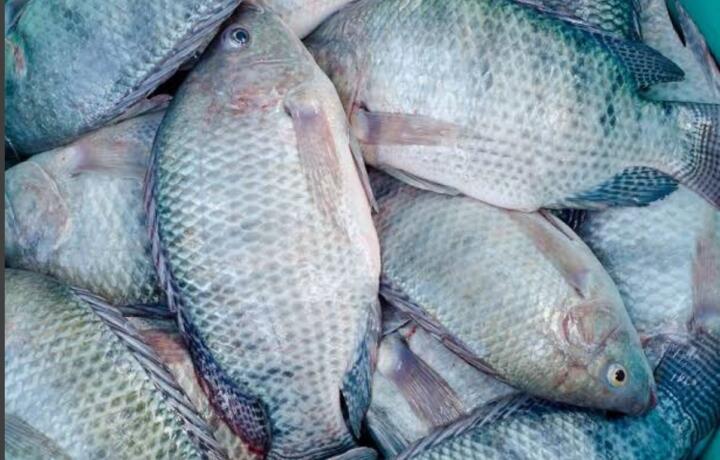In a bold move to streamline trade outflows and strengthen domestic food security, the Federal Government has unveiled a comprehensive initiative to reduce Nigeria’s $1.2 billion annual fish import bill by ramping up local aquaculture production. The policy shift is part of a broader strategy to boost agricultural output, generate jobs, sustain foreign currency, and reduce dependency on imported fish.
At the heart of the initiative is a multi-agency task team assembled to coordinate efforts across the Ministries of Agriculture, Trade, and Finance, as well as the National Agency for Administration and Development Agencies involved in livestock and aquaculture. This inter-ministerial committee was mandated with crafting investor-friendly policies, fast-tracking licensing, and reviewing regulatory bottlenecks that have hindered local fish farming productivity.

The government’s rationale is clear: Nigeria’s current annual fish import stands at roughly $1.2 billion, placing pressure on scarce foreign exchange reserves and exposing domestic consumers to price shocks. Local fish production is estimated at about 900,000 metric tonnes per year, matching only 40 to 45 percent of national consumption. Meanwhile, informal aquaculture, artisanal fishing, and private hatcheries remain underdeveloped and fragmented.
To reverse this trend, the government will provide incentives in several areas, including subsidized quality fingerlings, improved veterinary services, and concessional financing for fish farmers. Special credit windows are being opened through commercial and microfinance banks, offering below-market interest rates and loan guarantees to catalyse expansion of fish ponds and hatcheries across the country’s six geopolitical zones.
Key investment opportunities are being identified in states with high aquaculture potential—such as Kogi, Cross River, Ogun, and Delta—with technical assistance from global development partners. The plan includes vocational training for extension officers, food safety monitoring, and support for small to medium-scale female-led enterprises in inland fish vending and cold-chain operations.
The government is also enhancing cold chain incentives to reduce post-harvest losses, a major barrier in Nigeria’s fisheries industry. Cold storage facilities and refrigerated haulage systems are being co-financed in partnership with private operators to ensure that fresh and processed fish products reach markets with minimal quality deterioration.
Local agencies are tasked with standardising hatchery operations to produce disease-resistant species and diversifying aquaculture into catfish, tilapia, and high-value crustaceans such as shrimp. Meanwhile, ongoing educational campaigns will aim to rehabilitate local demand through nutrition messaging and pricing stabilisation.
Officials acknowledge there are structural challenges. Security issues in rural fish-farming zones, poor power supply, limited research-backed feeding systems, and weak value chains continue to hamper growth. To this end, the government emphasized improvements to feeder roads, solar-powered water pumps, cooperative training, and public-private partnerships in feed milling.
Industry stakeholders welcomed the intervention. Aquaculture associations noted that earlier legislated frameworks lacked effective implementation. They called on the government to ensure that tax waivers on fish feed and essentials are enforced and that border controls be strengthened to stop re-routing of imported fish as local products.
Environmentalists also raised concerns, urging that the push for expansion must be balanced with ecological safeguards. They recommended adopting land- and water-based integrated fish farming systems, ensuring environmental impact assessments are conducted, and preventing the depletion of natural waterways.
Commercial importers—a group heavily affected by the shift—warned about transitional risks. They recommended that the reduction in imports be phased in, allowing time for local farmers to scale production and meet national demand. They also urged government commitment to quality standards and market stabilization to prevent price surges during transition.
Under the policy, the government has set a near‑term target to reduce reliance on imported fish by at least 50 percent within two years, while aiming for full self-sufficiency over a five-year horizon. Progress will be measured through updated national fisheries data, and credit facilities will be assessed quarterly for uptake and impact.
Success would mean retaining significant foreign exchange—estimated at over $600 million per annum—and generating economic multiplier effects in rural communities. Direct implications include new employment for pond operators, hatchery technicians, cold-chain logistics staff, and market traders. Indirect benefits are expected in feed manufacturing, agritech service provision, and fish export potential.
In announcing the scheme, the Agriculture Minister cited the example of countries such as Vietnam and Bangladesh, which successfully achieved near-total self-sufficiency through sustained investment in aquaculture infrastructure and farmer training. He urged stakeholders to view the strategy as central to Nigeria’s food sovereignty agenda.
If executed effectively, local fish production could relieve nutritional deficits, stabilise prices, and open export opportunities across West Africa. Critics, however, caution that past promises without sustained follow-through have left the sector undercapitalised. They argued that strong governance, transparent tracking, and credible incentives will be essential.
As the initiative begins to take shape, attention will turn to policy clarity, financing access, and coordination across Nigeria’s vast value chain. For now, the government’s strategy reflects renewed urgency to address a major economic outflow and reposition food production as a pillar of national resilience. If farmers and regulators collaborate effectively, Nigeria may soon reel in more fish than it imports.
Support InfoStride News' Credible Journalism: Only credible journalism can guarantee a fair, accountable and transparent society, including democracy and government. It involves a lot of efforts and money. We need your support. Click here to Donate
